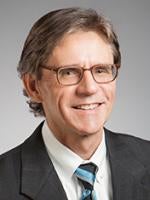On June 12, 2018, Earthjustice filed a petition on behalf of several environmental groups, including California Communities Against Toxics, Sierra Club, and others, against the U.S. Environmental Protection Agency (EPA) in the U.S. Court of Appeals for the District of Columbia Circuit (the D.C. Circuit) challenging EPA's 2018 rule revisions on the Definition of Solid Waste (DSW) mandated by the court. See Petition for Review, California Communities Against Toxics, et al. v. EPA, No. 18‑1163 (D.C. Cir. June 12, 2018) (California Communities Case). Previous litigation on the DSW rule is summarized in KEAG Bulletin No. 2018-03 (March 16, 2018). In the previous litigation, the D.C. Circuit issued an opinion in July 2017 and a clarification opinion in March 2018 regarding challenges to parts of the 2015 Obama-era DSW rule by both industry and environmental groups. Id. The D.C. Circuit's 2017 and 2018 opinions upheld some aspects of the 2015 Obama-era rule and vacated others. Id.; see also American Petroleum Institute v. EPA, No. 09‑1038 (D.C. Cir. 2018) (API Opinion).
In particular, the API Opinion vacated the 2015 Obama-era DSW rule's Verified Recycler Exclusion (VRE), except for that exclusion's emergency preparedness requirements and a "contained" standard for managing materials prior to recycling. KEAG Bulletin No. 2018-03 (March 16, 2018). By vacating the VRE, the court reinstated the less stringent 2008 Bush‑era DSW rule exclusion known as the Transfer-Based Exclusion (TBE). Id. The vacated VRE allowed third-party recyclers to meet certain criteria as an alternative to complying with RCRA hazardous waste permitting and regulatory requirements, where the recycler is verified by a regulatory agency. The reinstated TBE, on the other hand, requires generators of hazardous secondary materials to make "reasonable efforts" to ensure that third-party recyclers meet the requirements of legitimate recycling. See id.
The API Opinion also upheld an exclusion in the 2015 Obama-era DSW rule for exemption of four spent petroleum catalysts from more stringent RCRA requirements. Additionally, the API Opinion vacated a requirement for EPA to use the fourth legitimacy factor, which requires that a recycled product be comparable to or lower in contaminant levels than a legitimate product or intermediate. If the former contains higher levels of contaminants, it requires additional procedures and tests (a.k.a., the "toxics along for the ride" test). Id.
In response to the API Opinion, EPA issued a final rule on May 30, 2018 that revised the DSW rule to incorporate the changes required by the D.C. Circuit. 83 Fed. Reg. 24,664 (May 30, 2018). The environmental petitioners in the California Communities Case challenge EPA's new rulemaking and also portions of the 2008 Bush-era DSW rule, which EPA's latest rule is based upon. California Communities Case Petition at 2. It appears unlikely that the court will grant the environmental groups' petition, given that these issues have recently been litigated and a final judgment rendered by this very court. Further, EPA's recent rule makes revisions to the DSW rule required by this court's holding in the API Opinion. Environmentalists claim that their petition challenges the 2008 Bush-era DSW rule, which was reinstated and broadened by the court's recent decision. It will be interesting to see how the court responds to this petition.




 />i
/>i
